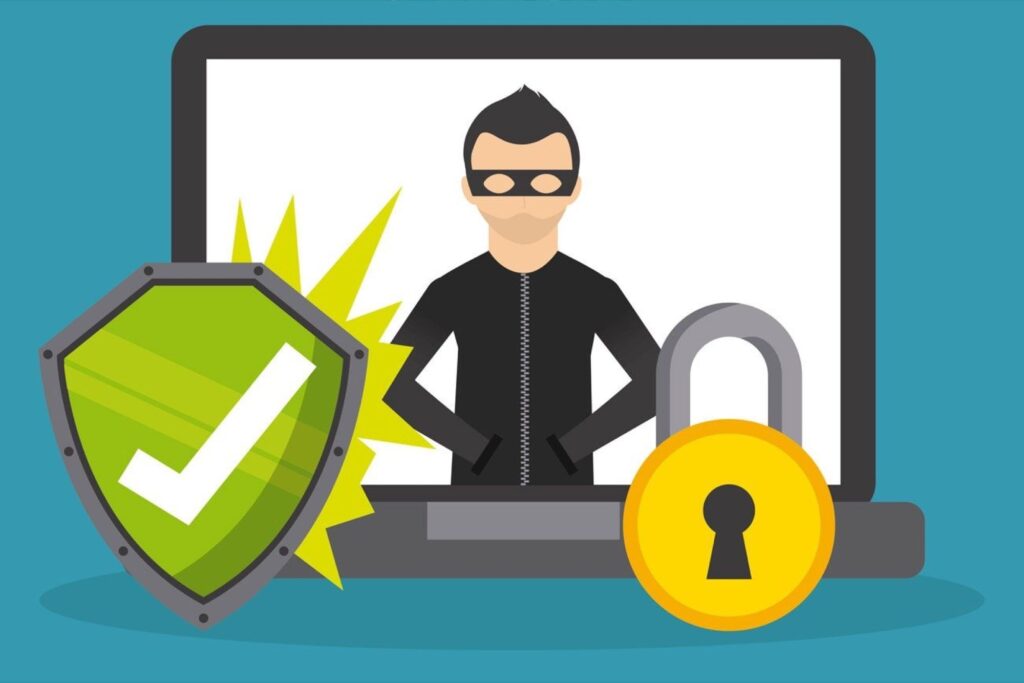If you’re a startup founder, it’s important to prioritize cybersecurity right from the beginning. Hackers are constantly on the lookout for vulnerable targets, and startups are often seen as easy prey. Many startups underestimate the threat and fail to implement robust measures to protect sensitive data. However, data breaches can have severe consequences for startups, including financial losses and reputational damage. Small businesses with fewer than 1,000 employees are particularly vulnerable to cyber attacks. Compliance with data protection regulations, such as GDPR, is crucial for startups operating in Europe. It’s worth noting that startups that experience cybersecurity incidents may face legal action and financial liabilities. Moreover, investors and board members are increasingly concerned about cybersecurity and may be deterred by a startup’s past breaches. Therefore, it is essential for startups to make cybersecurity a priority in order to mitigate risks and protect their business and customer data.

Startups are at risk of being targeted by hackers
As startups continue to grow and innovate, they also become attractive targets for hackers. Unfortunately, many startups underestimate the threat they face and fail to prioritize cybersecurity. This can leave them vulnerable to data breaches, which can have severe consequences for their business.
Data breaches can have severe consequences for startups
Data breaches are a common occurrence in today’s digital landscape, and startups are not immune to this threat. When a startup experiences a data breach, it can result in financial losses and reputational damage that can be difficult to recover from.
Financial losses
Data breaches can result in significant financial losses for startups. The costs associated with responding to a breach – such as investigation, remediation, and legal fees – can add up quickly. Additionally, startups may also face regulatory fines and penalties as a result of a breach. These financial burdens can be overwhelming for startups, especially those that are operating on tight budgets.
Reputational damage
Perhaps even more damaging than the financial losses is the reputational damage that a startup can suffer as a result of a data breach. When customers’ personal information is compromised, it erodes trust and confidence in the startup’s ability to protect sensitive data. This can lead to a loss of customers and a tarnished reputation that is difficult to repair.

Small businesses are particularly vulnerable to cyber attacks
Startups, especially those with fewer than 1,000 employees, are particularly vulnerable to cyber attacks. There are several reasons why small businesses are more at risk:
Less resources for cybersecurity
Unlike larger companies with larger budgets, startups often have limited resources to allocate towards cybersecurity. This means they may not have the necessary tools, technologies, or personnel in place to effectively protect their systems and data. Hackers are aware of this vulnerability and specifically target startups with the expectation that their defenses will be weaker.
Lack of awareness about threats
Another factor that contributes to the vulnerability of startups is a lack of awareness about the threats they face. Many startups are focused on developing their product or service and may not fully understand the risks associated with cybersecurity. They may not be aware of the latest threats or best practices for protecting their data, making them easy targets for hackers.
Limited IT infrastructure
Startups often have limited IT infrastructure, which can make them more susceptible to cyber attacks. They may have fewer servers, devices, and networks to secure, making it easier for hackers to breach their systems. Additionally, startups may not have established strong security policies or protocols in place, leaving them more exposed to threats.
Compliance with data protection regulations is crucial for startups
Compliance with data protection regulations is crucial for startups, particularly those operating in Europe. One of the most important regulations that startups need to adhere to is the General Data Protection Regulation (GDPR).
Importance of GDPR compliance
GDPR is a comprehensive data protection law that sets strict rules and standards for how businesses handle personal data of individuals in the European Union (EU). Startups that process data of EU residents are required to comply with GDPR, regardless of their physical location. Compliance with GDPR not only helps protect the privacy of individuals but also helps startups build trust with their customers.
Legal consequences for non-compliance
Non-compliance with GDPR can result in severe legal consequences for startups. The regulation allows for fines of up to €20 million or 4% of the company’s global annual revenue, whichever is higher. These fines can be crippling for startups, especially those that are still in the early stages of growth. In addition to financial penalties, non-compliant startups may also face legal action from individuals whose data has been compromised.
Startups may face legal action and financial liabilities
When startups experience cybersecurity incidents, they may face legal action and financial liabilities as a result. Depending on the nature of the breach, startups may be held accountable for damages caused to individuals or other businesses. These damages can include financial losses, identity theft, or other negative consequences that resulted from the breach. Startups may be required to compensate affected parties, cover legal expenses, and potentially pay fines or penalties imposed by regulatory authorities.
Investors and board members are concerned about cybersecurity
Investors and board members are acutely aware of the risks and consequences of cybersecurity breaches. They understand that a startup’s ability to protect sensitive data is critical to its success and long-term viability. As such, they closely scrutinize a startup’s cybersecurity measures and past breaches when making investment decisions.
Impact on investment decisions
Startups that have experienced past breaches may find it more challenging to secure funding from investors. Investors are more likely to invest in companies that demonstrate a strong commitment to cybersecurity and have a track record of protecting sensitive data. A history of breaches can raise concerns about the startup’s ability to mitigate future risks and protect investors’ capital.
Reputation risk for board members
Cybersecurity breaches can also pose a reputation risk for board members of startups. If a startup experiences a significant breach that results in financial losses or reputational damage, board members may face scrutiny and criticism for their oversight of the company. This can tarnish their professional reputation and potentially impact their future career prospects.

Cybersecurity is a priority for startups to mitigate risks
Given the severe consequences that data breaches can have on startups, cybersecurity should be a top priority. By investing in robust cybersecurity measures, startups can mitigate risks and protect their business and customer data.
Protecting business and customer data
Startups often handle valuable and sensitive data, both from a business and customer standpoint. This data includes intellectual property, financial information, personal information, and more. Protecting this data is crucial to ensuring the viability and success of the startup. Implementing strong security measures, such as encryption and access controls, can help prevent unauthorized access to this valuable data.
Preventing financial losses
The financial losses associated with data breaches can be devastating for startups. By prioritizing cybersecurity, startups can implement measures that help prevent breaches from occurring in the first place. This may include regular security audits, vulnerability assessments, and penetration testing to identify and address any weaknesses in their systems. By proactively addressing potential vulnerabilities, startups can save themselves from the financial burden of a data breach.
Maintaining trust and reputation
Trust and reputation are essential for startups, as they are often competing against established companies in their respective industries. A data breach can quickly erode the trust that customers and partners have in the startup, leading to a loss of business and a damaged reputation. By prioritizing cybersecurity, startups can demonstrate their commitment to protecting sensitive data and maintaining the trust of their stakeholders.
Startups should prioritize cybersecurity from the beginning
Startups should prioritize cybersecurity from day one to ensure that they are adequately protected from potential threats. By integrating cybersecurity practices into their business processes and culture from the outset, startups can build a strong foundation for protecting their data.

Implementing robust measures to protect sensitive data
To protect sensitive data, startups should implement robust cybersecurity measures that align with industry best practices. These measures may include:
Risk assessment
Startups should begin by conducting a thorough risk assessment to identify potential vulnerabilities and risks. This assessment should consider both internal and external threats and evaluate the impact and likelihood of each risk. Based on the findings of the risk assessment, startups can prioritize their cybersecurity efforts and allocate resources accordingly.
Employee education and training
Employees play a crucial role in maintaining the cybersecurity posture of a startup. Startups should invest in employee education and training programs to ensure that employees are aware of the threats they may encounter and understand best practices for protecting sensitive data. Regular training sessions and ongoing awareness campaigns can help keep cybersecurity top of mind for all employees.
Regular software updates
Software vulnerabilities are a common entry point for hackers. Startups should ensure that all software and systems are regularly updated with the latest security patches and updates. This includes not only the operating systems but also any third-party software or applications that the startup utilizes.
Firewalls and intrusion detection systems
Deploying firewalls and intrusion detection systems can add an extra layer of protection to a startup’s network. Firewalls help prevent unauthorized access to the network by filtering incoming and outgoing traffic, while intrusion detection systems monitor network activity for suspicious behavior or potential breaches.
Encryption and secure data storage
Encrypting sensitive data and ensuring secure data storage are vital to protecting it from unauthorized access. Startups should encrypt data at rest and in transit to prevent it from being compromised. Additionally, startups should implement secure data storage practices, such as regular backups and secure cloud storage, to prevent data loss in the event of a breach.
By implementing these measures and taking a proactive approach to cybersecurity, startups can significantly reduce the risk of a data breach and safeguard their business and customer data. Prioritizing cybersecurity from the beginning is not only a smart business decision but also a necessary step to ensure the long-term success and sustainability of the startup.











